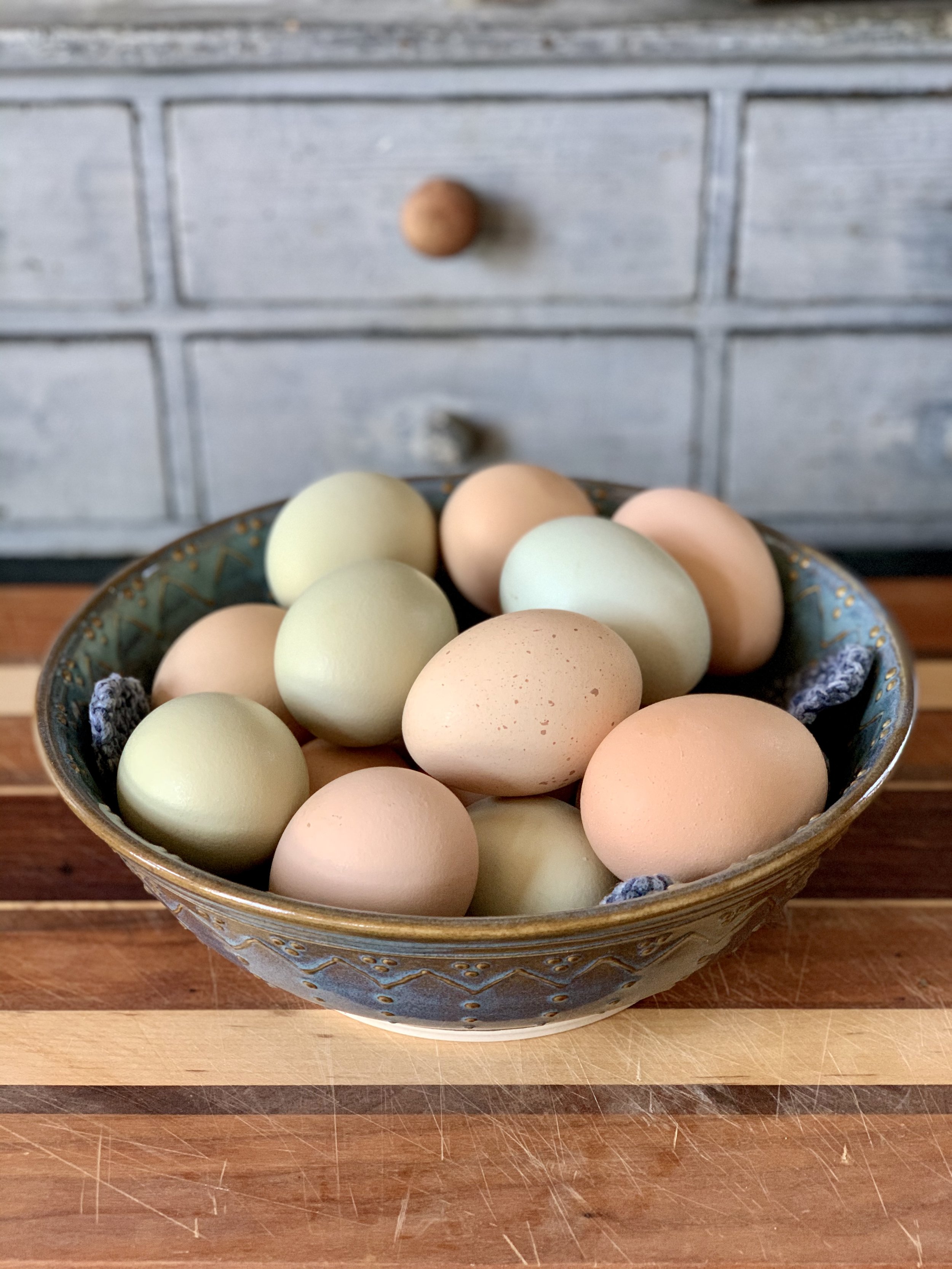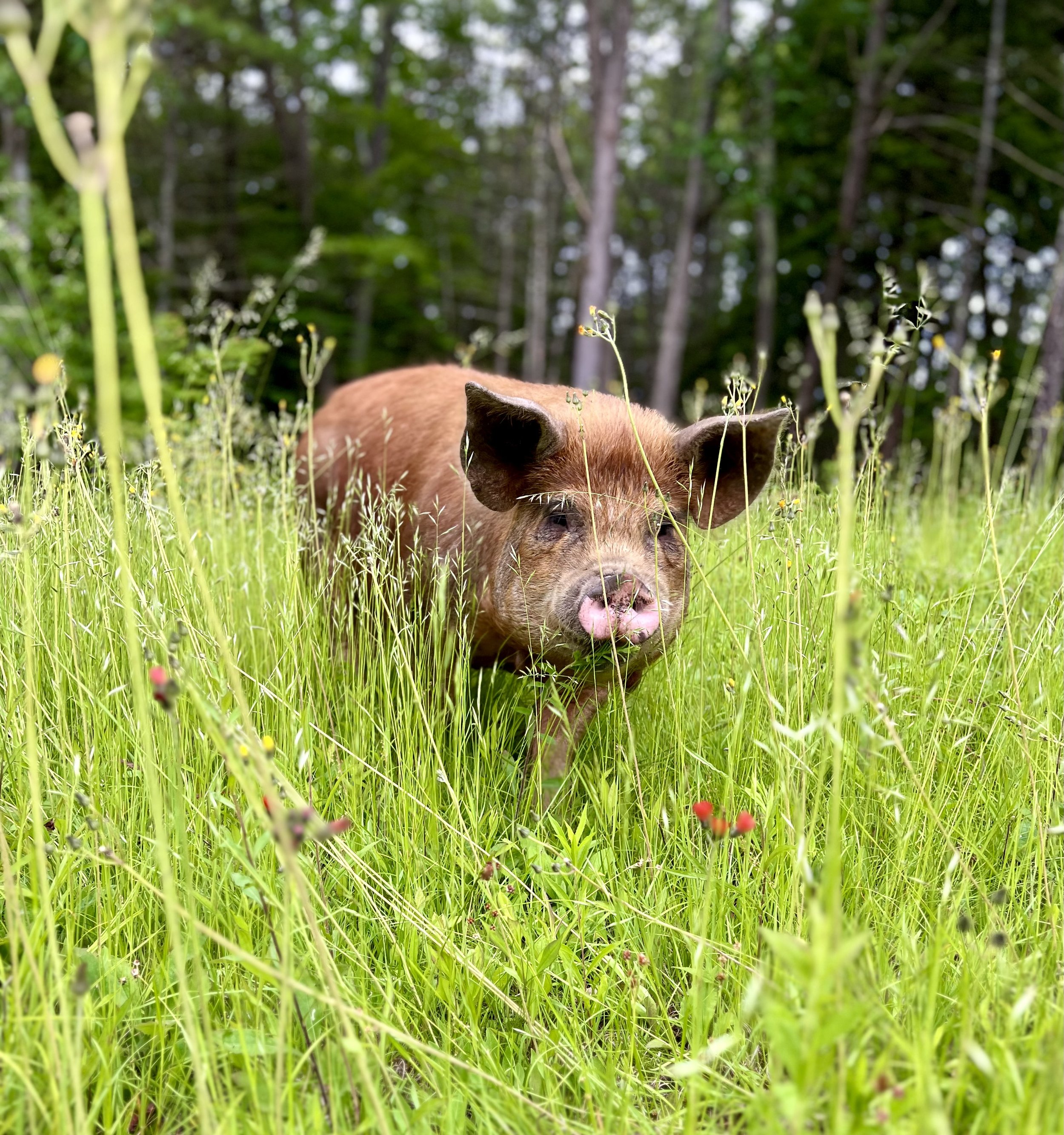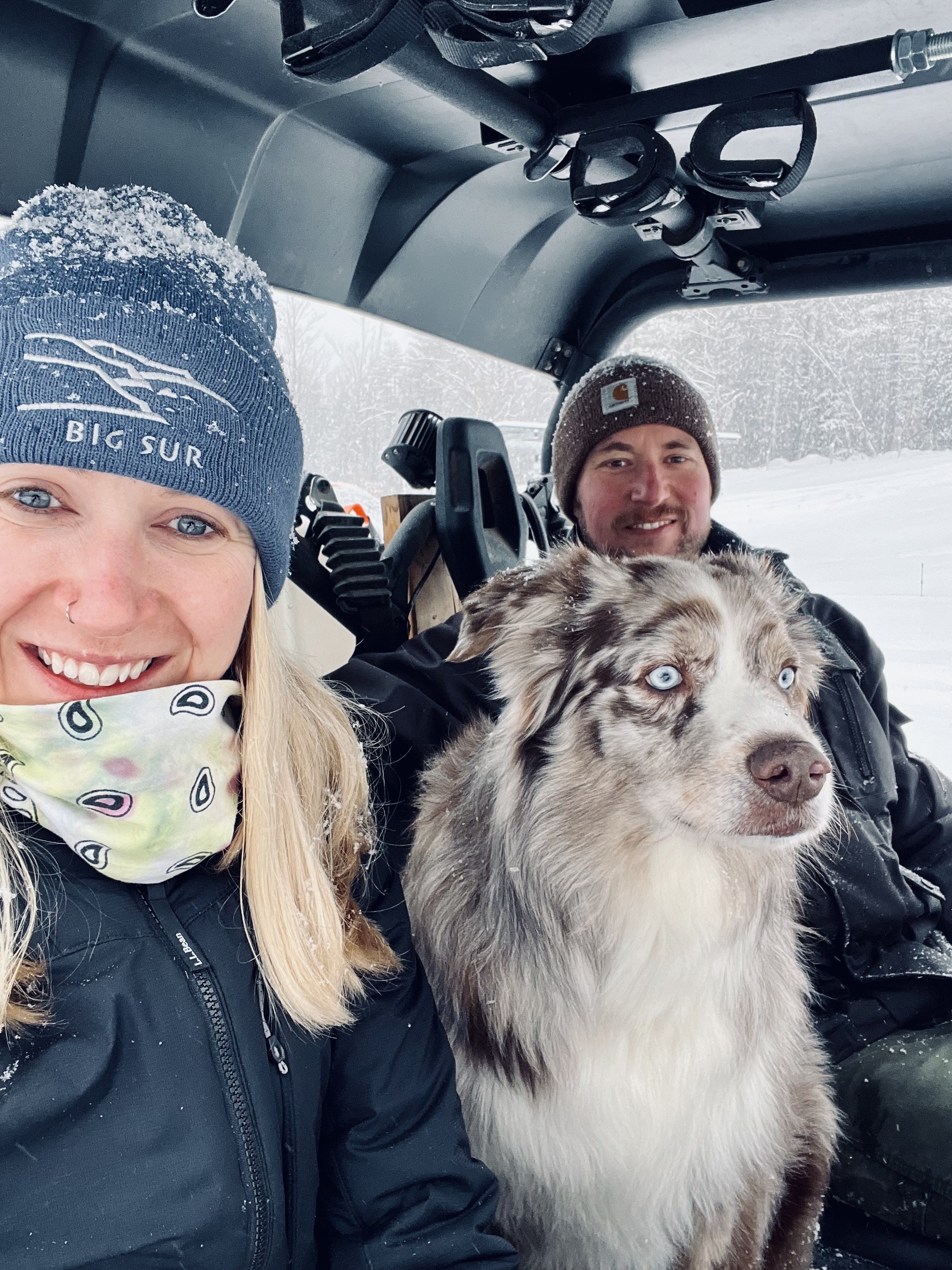Welcome to Boulder Meadows Farm
Hi! We are Aaron and Kaitlyn – local NH natives, farm-steading extraordinaries and lovers of the land.
In 2016, in an effort to become non-reliant on Big Food and commercial farming we began raising pigs. During this first year we raised four conventional grain fed hogs and became hooked! Over the next few years, we increased our herd up to five, six, ten and then twelve pigs!
Although we loved not having to rely on the grocery store for our pork, there were a few things that weren’t adding up:
The amount of grain (corn and soy) consumed by conventional pigs was substantial. Which in turn, is unhealthy for us to consume and not much different than the commercial pork. It’s also very costly to purchase.
The destruction they caused to our land, the fencing, etc. was immense. There would be no sustainable way for us to keep up with the destruction and allow the land to bounce back. This did not align with our restorative farming values.
Without a breeding program of our own we were buying piglets from other farms each year which proved quite challenging and expensive!
We were tired of getting calls from neighbors (or the police) saying our pigs were on the main road or in their backyard. True story, a few years back about eight of them were on Rte. 114 having their own field trip to New London!
In searching for solutions, we found our current breed, the Idaho Pasture Pig (IPP). This breed was developed in 2010 and is a crossbreed of Berkshire, Duroc and Kunekune pigs. They are an accepted and registered breed, with growing popularity, especially amongst homesteaders for the following reasons:
● They have an innate desire to graze on grass rather than root it up (less destruction to land and no escaping under fencing).
● The grasses they consume contain high levels of protein and nutrients, requiring them to need much less grain to grow (about an eighth) than that of a conventional pig.
● They have strong motherly instincts, making farrowing (having piglets) a smoother process with less complications.
● They are extremely friendly, docile and easy to handle.
In January of 2022 we purchased our first IPPs, a registered breeding set who we named Johnny and June (after Johnny Cash and June Carter of course) along with five IPP piglets to raise as feeders. The first year with this breed was awe-inspiring. We were astonished to experience first-hand the amount of hay (during the winter) and grass (the other three seasons) they ate, versus the amount of grain we fed them. There were many times we questioned if we were giving them enough grain, because it was so minimal compared to what we were used to feeding!
As spring turned into summer, our rotational grazing pattern allowed us to see our land flourishing rather than being destroyed. Our fields and pens were fuller than they’d ever been with deep rich green grass. The moment we got to taste our first pasture raised pork, well that was it - we were hooked. The marbling and deeper red (rather than pale pink) coloring, which resembled grass-fed beef, was distinct and when we held it next to conventional grain-fed pork it was night and day!
As the first farrowing came and went without incident it was clear that everything, we had hoped for with this breed was true and actually exceeded our expectations. June was a great mom and watching the piglets run around was needless to say pretty enjoyable!
Since 2022, we’ve continued growing our herd as our customer base expands. Eight years and counting of hog farming has taught us, and continues to teach us SO MUCH! We truly feel blessed to have found the IPP breed and to be providing clean pork to our family, as well as yours. We hope you can taste the passion we have for this breed and the care we put into the well-being of each and every animal we raise.
We invite you to follow us on social media to learn more about us, our farmstead and our products!
Thank you for your continued support
Kaitlyn and Aaron


